Earth
Sign up for our newsletter
We summarize the week's scientific breakthroughs every Thursday.
-
 Environment
EnvironmentWhen coal replaces a cleaner energy source, health is on the line
Health concerns prompted a shift from nuclear power to coal. But that shift came with its own health troubles, a new study suggests.
-
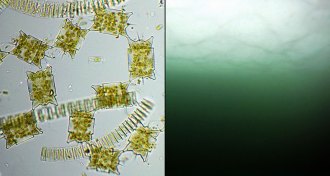 Oceans
OceansThinning ice creates undersea Arctic greenhouses
Arctic sea ice thinned by climate change increasingly produces conditions favorable for phytoplankton blooms in the waters below, new research suggests.
-
 Earth
EarthDeadly New Zealand quake hopscotched across faults
The Nov. 14, 2016, earthquake in New Zealand was much larger than thought possible at the time, prompting a rethink of hazard assessments.
-
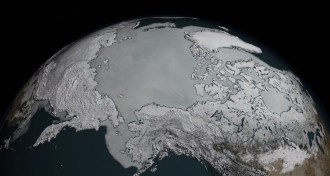 Climate
ClimateArctic sea ice hits record wintertime low
Warm temperatures and heat waves reduced sea ice extent in the Arctic to its smallest maximum extent ever seen.
-
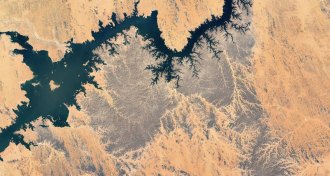 Physics
PhysicsTo understand rivers, let physics be your guide
Where the River Flows unites physics and environmental science to explain Earth’s waterways.
-
 Earth
EarthRemnants of Earth’s original crust preserve time before plate tectonics
Canadian rocks containing bits from 4.2 billion years ago suggest that full-fledged plate tectonics had a late start.
-
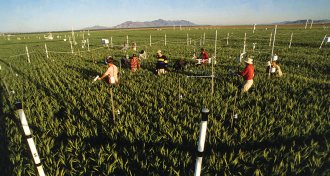 Climate
ClimateChanging climate could worsen foods’ nutrition
Climate change could aggravate hidden hunger by sapping micronutrients from soils and plants, reducing nutrition in wheat, rice and other crops.
By Susan Milius -
 Genetics
GeneticsHow to grow toxin-free corn
Corn genetically altered to produce specialized molecules may prevent a fungus from tainting it with carcinogenic toxins.
-
 Earth
EarthWarming soils may belch much more carbon
New measurements suggest soils below 15 centimeters deep could play a sizable role in boosting carbon emissions as the planet warms.
-
 Agriculture
AgricultureFleets of drones could pollinate future crops
Chemist Eijiro Miyako turned a lab failure into a way to rethink artificial pollination.
-
 Ecosystems
EcosystemsInvasive species, climate change threaten Great Lakes
In The Death and Life of the Great Lakes, a journalist chronicles the lakes’ downward spiral and slow revival.
-
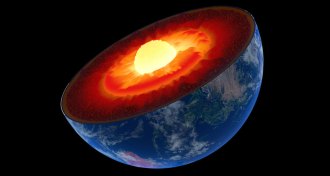 Earth
EarthEarth’s mantle may be hotter than thought
Earth’s mantle is warmer than previously thought, suggests a new experiment that better accounts for water content in rocks.